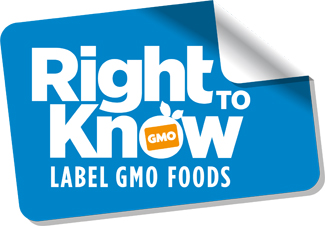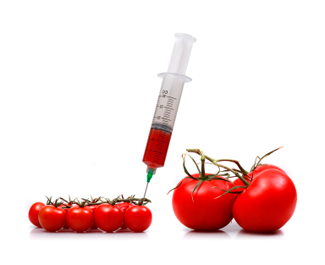There are several big changes proposed for this November’s ballot. Our country could see a new president elected, the government could feel a major party shift, and health care reform may be turned on its head. One issue that is so important to many of us is the labeling of Genetically Modified Organisms (GMO). This issue hasn’t gotten as much national press as other hard-hitters, but it has made its way onto California’s ballot. In November, Californians will have the chance to change history and promote national change for our food, and ultimately our health. Proposition 37, calling for the labeling of all GMO foods, will be in the hands of the voters this fall.
This issue earned a space on the ballot after the CA Right to Know Campaign submitted nearly a million signatures declaring a desire for food labeling. Currently there is no way to know if the food you are purchasing is a GMO because the law in this country does not require it.
Stacey Malkan is the Media Director for the California Right to Know 2026 ballot initiative. She explained to us how the US is not keeping with the international trend of food labeling. “More than 40 other countries already require labeling of genetically engineered food so this is not anything out of the ordinary and is not rocket science — it’s about our fundamental right to know.”
It’s the issue of our “right to know” that seems to keep the controversy going. As Malkan puts it, “If genetic engineering is so great why don’t they want us to know about it?”
If you hear from the other side, you get a very different response.
Kevin Richards is the Director of Regulatory Relations for the American Farm Bureau Federation (AFBF). He explained that mandatory labeling will only hurt the food and farming industry. One of the many reasons Richards feels this way comes from the fact that the FDA doesn’t require labels on a product unless there is a “material difference,” or an element that changes the nutritional composition of a food. Since GMOs chemically contain the same components as conventional foods the law does not require a label. Richards believes that forcing the FDA and other regulatory agencies to label GMOs would undermine their credibility, as they’d be labeling an item as different while they are the technically the same.
Richards supports voluntary labeling though. Many companies have reacted to the public’s desire to know about GMOs in their food and as Richards put it, “the market finds solutions.” Furthermore, Richards fears that mandatory labeling will have major economic effects as many farmers have adopted forms of biotechnology in their processes and the labeling could lead to consumer shifts based on what he calls the public’s “unfair demonizing of biotechnology.”
This is a tricky subject and a hard one to swallow. While one side boasts of the benefits to farmers and to the economy, another side raises the question about safety. The Right to Know site notes that independents studies have linked GMOs to increased allergies. Other studies have shown links from GMOs to asthma, autism, and even ADHD. These statistics make it hard to support the anti-labeling camp.
Perhaps that public “demonizing” continues because so many of us feel like our hands are tied when it comes to biotechnology. Malkan feels the public is being pushed around and unfairly treated. “We don’t like the idea of the bureaucrats and corporations telling us what we are and are not allowed to know about our food. The bottom line is that we have the right to know whether our food was genetically engineered in a lab, and to choose for ourselves what we eat and feed our families.”
If you live in California, you can speak up about this topic. Your loudest voice will be heard by voting yes on Proposition 37 to help bring about GMO labeling. If you don’t live in California, spreading the word about Prop 37 will still impact the nation. If the law passes in California, all states have a strong foundation laid to begin lobbying. Whether or not you live in California, let your voice be heard now:
- Use the following tags when tweeting about mandatory labeling of GMOs: #LabelGMOs #CARightToKnow #YesOn37
- Visit CARightToKnow.org to learn more and get more involved
- Follow Right to Know on Facebook
- Write an article on your blog or Website voicing your position, helping to spread the GMO labeling word
The right to know seems fundamental for all Americans and a cause worth fighting for, don’t you think?
Also Read:
4 Simple Tips for Avoiding GMOs
True Food Shopper’s Guide for Buying Non-GMO Foods
Video: Decoding Food Labels
